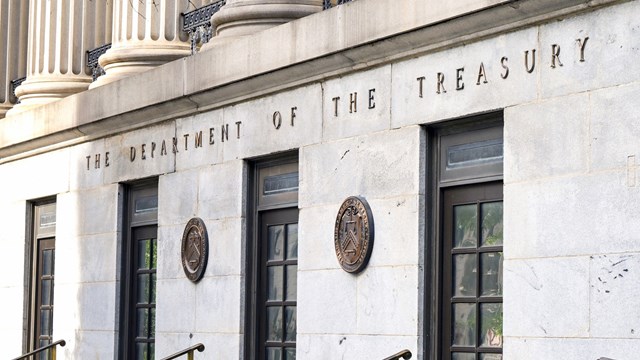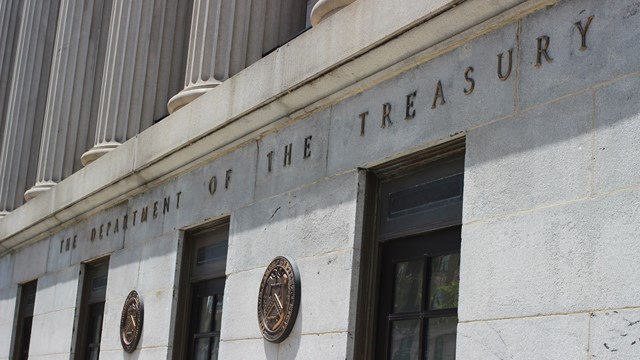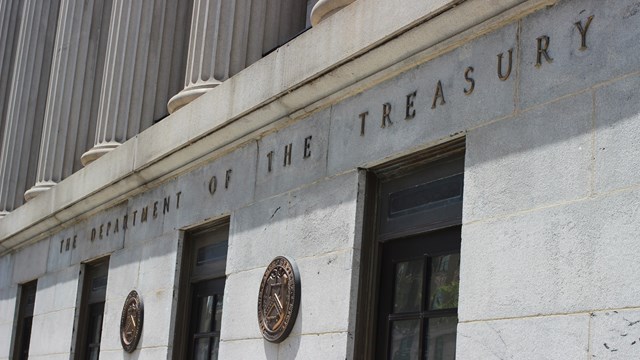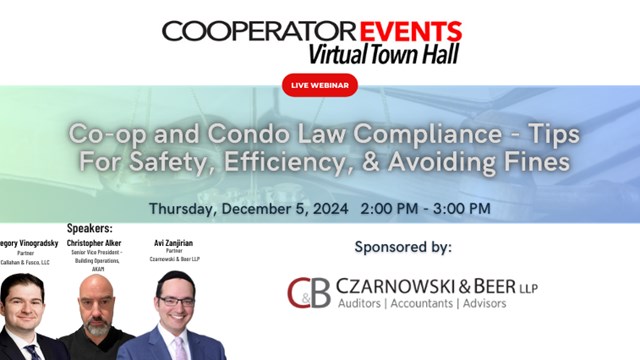Back in 2021, Congress passed the Corporate Transparency Act (CTA), a federal law requiring most corporations, LLCs, and other such entities to register with the U.S. Treasury Department’s Financial Crimes Enforcement Network (FinCEN). The function of the Act—which went into effect on January 1 of this year—was to fortify laws around money laundering, corruption, tax fraud, and other financial crimes.
Corporations that fall within the scope of the Act must submit what’s called Beneficial Ownership Information (BOI) to the Treasury Department by January 1, 2025, or face significant fines—and possibly even jail time—for noncompliance.
What’s the CTA?
According to fincen.gov, “Congress passed the Corporate Transparency Act on a bipartisan basis. This law creates a new beneficial ownership information reporting requirement as part of the U.S. government’s efforts to make it harder for bad actors to hide or benefit from their ill-gotten gains through shell companies or other opaque ownership structures.”
More specifically, according to a recent legal update written by Ingrid C. Manevitz, partner, and Kristin Pendergrass, of counsel, at New York City–based law firm Seyfarth Shaw LLP, “At a high level, the goal of the CTA and its associated beneficial ownership information regulations … is to penetrate through layers of intermediate entities and identify to the U.S. Department of Treasury’s FinCEN, for law enforcement purposes, the individuals ultimately exercising control or enjoying ownership of entities doing business in the US.”
Manevitz and Pendergrass go on to explain that “the CTA requires certain entities (each a ‘Reporting Company’) to report specific beneficial ownership information (BOI) to FinCEN, and any change to previously reported information within a specified time period. All reports and filings are submitted online through FinCEN’s E-Filing System.”
What has that got to do with residential condos or co-ops? Quite a bit. As is often the case with legislation targeting corporations and nonprofit business entities, the CTA doesn’t contain language specifically carving out exceptions for HOAs, condo associations, or residential co-ops—nonprofit entities that also happen to be people’s homes.
The Community Associations Institute (CAI) has taken a firm anti-CTA position. According to several statements on the matter, CAI finds that the CTA’s reporting requirements “unintentionally apply to more than 350,000 local volunteer-driven, homeownership non-profit organizations in the United States. Community associations, also known as homeowners associations, condominium associations, and housing cooperatives, are usually organized as state non-profit corporations—and therefore are swept into the Business Ownership Information (BOI) reporting requirements of the Anti-Money Laundering/Corporate Transparency Act.”
Although the language of the CTA doesn’t specifically name condominium association boards, based on the language it does contain, and how condos, co-ops, and HOAs must register with their respective states, “the CTA applies to cooperative corporations and may apply to condominiums,” say Manevitz and Pendergrass, “and adds a new material layer of regulatory compliance for entities, and carries both civil and criminal penalties for non-compliance.”
While there has been some debate in legal circles as to whether the CTA applies to all multifamily associations, and a recent legal ruling has even thrown the constitutionality of the Act itself into question (more on that in a moment), most attorneys and management firms are operating under the assumption that the CTA does indeed include co-ops, condominium associations, and co-op corporations—and their directors and trustees—and are counseling their client boards to plan accordingly in order to avoid running afoul of the Act and incurring steep penalties. And those penalties are no joke; failure to submit can result in civil fines of $500 per day and criminal penalties of up to $10,000, as well as up to 24 months in prison.
What Does Filing Mean?
Of most pressing concern to the boards of multifamily communities is the CTA’s requirement for Beneficial Ownership Information (BOI) to be filed with the Treasury Department—and be updated whenever that information changes.
So what’s BOI? According to a recent brief from property management firm FirstService Residential, which manages condo, co-op, and HOA communities nationwide, BOI includes, at minimum, the name and address of the association; and the legal names, birthdates, full addresses, and driver’s license or passport numbers of not just all board members, but “anyone with substantial control over the association’s financial reporting,” as well as an image of the IDs from which those numbers were taken.
According to Manevitz and Pendergrass, “In addition to the BOI, the cooperative or condominium must disclose the following information to FinCEN: The full legal name of the entity; any trade names, doing business as (d/b/a), or trading as (t/a) names through which it conducts business; the entity’s complete current address of its principal place of business in the U.S.; its State of formation; and the entity’s federal employer identification number (EIN).”
It’s not entirely clear from the CTA’s language whether “anyone with substantial control over the association’s financial reporting” would include property managers and/or management companies, too—but it certainly appears likely, and it’s something co-op and condo attorneys are working to determine on behalf of their client communities.
According to fincen.gov, boards of associations created or registered to do business before January 1 of this year have until January 1, 2025, to file their BOI report with the Treasury Department via the FinCEN website at www.fincen.gov/boi. According to the website, the information collected by FinCEN from reporting entities and beneficial owners is kept in a secure, confidential database and is not available to the public.
Newer associations—those formed on or after January 1, 2024, but before January 1, 2025—have 90 calendar days to complete their initial report after receiving notice of the association’s creation or registration “or after a secretary of state or similar office first provides public notice of its creation or registration, whichever is earlier.” Associations created or registered on or after January 1, 2025, will have 30 calendar days from actual or public notice of their creation or registration to file their initial BOI reports.
Also of importance to note is that any changes, corrections, or additions to the filing—like if a board member moves, steps down, or is replaced, for example, or even when a board member’s drivers license expires and is renewed—must be reported within 30 days of the board becoming aware of the change. This rule applies regardless of when a given association was established.
Pushback
While few would dispute the value of preventing fraud and money laundering, the CTA’s additional bureaucratic burden, its demand for so much personal information from regular people just trying to help govern the communities they call home, as well as the broadness of its scope, do not sit well with many—including management firms like FirstService Residential and industry advocacy organizations like CAI, both of which have asserted that the CTA should not apply to community associations.
According to CAI, “The Corporate Transparency Act intends to detect and report suspicious activity, including predicate offenses to money laundering and terrorist finance, to facilitate tracking money that has been sourced through criminal or terrorist activity to safeguard the national security and the financial system of the U.S. This Act was not intended to apply to volunteer-driven nonprofit corporations that are locally based with the sole purpose of providing municipal-like services to residents.”
On those grounds, CAI is “requesting a delay in implementing the Beneficial Ownership Information (BOI) reporting requirements by supporting H.R. 4035/S. 2623 and H.R. 5119; urging confidentiality of the individual corporate filings of the [BOI] reporting through the rulemaking process, and urging board members and industry professionals to reach out to their senators and request them to postpone the enforcement of the Corporate Transparency Act, as well as explain if community associations are subject to CTA reporting requirements.”
Industry players are not alone in their objection to the CTA’s requirements. Many lawmakers also take issue with the Act as well; a bipartisan coalition of more than 80 senators and representatives has sent a letter to FinCEN to advocate for a one-year postponement of all reporting obligations.
Where Do Things Stand Now?
The recent ruling of an Alabama District Court in a CTA-related case has raised fresh questions for boards and their legal advisors. The ruling came in early March in response to a lawsuit brought against Treasury Secretary Janet Yellen by the National Small Business Association (NSBA), which claimed that the CTA is unconstitutional. (National Small Business Association v. Yellen, No. 5:22-cv-01448) The judge sided with the NSBA, finding that the Act “exceeded the enumerated powers granted to the legislature by the United States Constitution,” and directed the government to stop enforcement of the CTA against the plaintiffs.
As a rule, a court decision only applies to the actual parties in a given case—so the Alabama judge’s ruling doesn’t mean that residential boards in New York, Boston, Chicago, or anywhere else in the country are off the hook for filing with FinCEN. The agency itself issued a statement on March 4 suggesting that it intends to appeal the decision—and according to a recent brief by Ed Allcock and David Lally, managing partner and associate, respectively, with the Braintree, Massachusetts-based law firm Allcock & Marcus, “The sentiment is that the case will work its way up to the 11th Circuit Court of Appeals and perhaps even to the United States Supreme Court. However, that process could take years.”
So what happens in the meantime? According to Allcock and Lally, “Absent a last-minute legislative or agency exemption, all condominium associations and corporations, and their directors and trustees, will have to file a [BOI] report. While some law firms are advising condominiums to hold off in the hope that the legislature or FinCEN create a specific exemption for condominiums or HOAs, the reality is that a condominium or HOA exemption is unlikely to come three years after the legislation passed.” In other words, don’t wait around to file your board’s BOI.
Get Some Help
The CTA’s requirements involve gathering and transmitting a lot of very personal information that must be compiled and handled carefully. There are some legal workarounds to disclosing individuals’ full BOI information to their board for submission, and some exemptions for communities depending on size, staffing levels, and other criteria, but with only a year to get compliant, and with the penalties for failing to do so as steep as they are, it’s vital that boards work with their legal counsel in the coming months to know and fully understand their options, prepare their report, and make sure they file it not just on time, but safely and securely.
On top of all that, Manevitz and Pendergrass also note that “in addition to reporting BOI to FinCEN, cooperative and condominium governing documents may need to be updated to address CTA requirements.” To that end, many co-op and condo law firms are getting the word out to their client communities about their obligations under the CTA, and guiding them through the process. Many (including Allcock Marcus) are establishing secure online transmission portals to facilitate clients’ BOI report submissions, as well as any necessary updates, amendments, or supplemental filings.
For boards and board members who object to the CTA’s requirements and want to take additional action, CAI chief strategy officer and executive director of the Foundation for Community Association Research Dawn Bauman says, “Now is a great time to contact your senator and urge them to delay implementation of the Corporate Transparency Act and clarify whether community associations are exempt from CTA reporting requirements.”
In the meantime, the consensus among legal pros is that boards should work closely with their management and legal counsel to ensure that they’re on the right side of the CTA as written.
Cooper Smith is a staff writer/reporter for CooperatorNews.










Comments
Leave a Comment